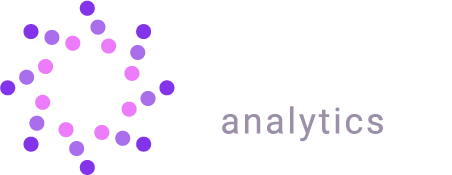TurboToxicology: Accelerating the Analysis, Interpretation, and Reporting of Toxicology Studies
The pharmaceutical and biotech industries are constantly pushing the boundaries of innovation in their quest to develop new and effective drugs.

Yet, behind the groundbreaking advancements, there’s a vast and often unseen world of research that involves meticulous testing, analysis, and reporting.
For scientists, toxicology studies play a pivotal role in evaluating the safety of medications in development. These studies require a great deal of expertise, rigor, and time—resources that are always in high demand. This is where TurboToxicology, powered by Resero Analytics, is making waves.
The Challenge: Improving A Time-Consuming and Detailed Process
In the traditional approach to toxicology studies, scientists collect data, analyze it, interpret the results, and then manually create detailed reports. The process is complex, subject to human error, and often disconnected across different stages—analysis, interpretation, and report generation. Scientists are tasked with compiling figures, tables, and text into a cohesive report, which takes time away from their core objective: drug discovery. For many, writing reports is one of the most tedious parts of their job.
For contract research organizations (CROs) and pharmaceutical or biotech companies, these challenges compound when managing multiple studies, ensuring accuracy, and meeting the fast-paced timelines that are inherent in the industry. The risk of errors, delays, and inconsistent reports is high. In short, scientists were spending too much time on administrative tasks and not enough on the critical work of drug development.
The Solution: TurboToxicology; AI-Driven Efficiency
TurboToxicology is a software solution designed to revolutionize toxicology data management. At its core, it uses artificial intelligence (AI) to streamline the analysis, interpretation, and reporting of toxicology study data—ultimately making the entire process faster, more accurate, and far less burdensome for scientists.
The software enables the automatic creation of draft reports, including tables, graphs, and interpretative text. Users can review the output, add interpretations based on their expertise, and finalize the report with minimal effort. What once took days or even weeks of painstaking work can now be accomplished in a fraction of the time.
Key Features of TurboToxicology:
1. Data Analysis & Interpretation: TurboToxicology analyzes data from both GLP (Good Laboratory Practice) and non-GLP studies, helping scientists interpret live phase, clinical pathology and anatomic pathology data more effectively.
2. Automation: Machine learning and AI algorithms flag important findings and automate time-consuming tasks such as report generation, reducing human error and increasing consistency.
3. Customization: The software is tailored to produce the exact reports that users need, ensuring alignment with regulatory standards and internal requirements.
4. Real-Time Updates: For CROs, TurboToxicology facilitates the delivery of real-time updates to clients, keeping sponsors in the loop throughout the study.
The Birth of TurboToxicology: A Solution Born from Experience
The story behind Resero Analytics and TurboToxicology begins with a toxicologist’s frustration. Dr. David Watson, the CEO of Resero Analytics, spent 19 years at Eli Lilly and Company, where he designed and supervised toxicology studies. Throughout his career, he was faced with the challenges of analyzing large datasets, interpreting results, and communicating those findings in a way that was both clear and concise for internal teams and regulatory bodies like the FDA.
Dr. Watson realized that much of the critical work he was doing could be automated to save time and reduce the likelihood of error. He envisioned a tool that could not only analyze and interpret toxicology data, but also generate reports in a seamless, integrated workflow.
In 2017, David retired early from Eli Lilly and started Resero Analytics to turn this vision into reality. The goal: to build a solution that would help scientists focus more on drug development and less on administrative tasks.
Overcoming Industry Skepticism: The Rise of AI in Drug Development
When Dr. Watson began working on TurboToxicology, the use of artificial intelligence in pharma was still in its infancy. Many companies were hesitant to embrace AI and cloud-based solutions, citing concerns about security and data privacy. However, as the technology matured, it became clear that AI and cloud solutions were not only feasible but also essential to improving efficiency in drug development.
AI-powered tools like TurboToxicology can analyze data faster and more accurately than traditional methods, which means that pharmaceutical companies and CROs can make quicker, more informed decisions. What once seemed like a risky proposition is now becoming the industry standard. Today, with the advent of generative AI and improved cloud infrastructure (such as Amazon Web Services), pharma companies are realizing the benefits of implementing the technical advantages provided by experts like Resero Analytics. This shift has opened the door for TurboToxicology to become the go-to tool for toxicology study analysis and reporting.
Practical Benefits for Biotech, Pharma, and CROs
TurboToxicology is designed to help both pharmaceutical and biotech companies as well as contract research organizations (CROs)—each of whom faces unique challenges.
For biotech and pharmaceutical companies, the need for speed and accuracy is paramount. These companies are often under tight deadlines, and scientists are under immense pressure to deliver high-quality data quickly. TurboToxicology automates much of the analysis and report generation, allowing scientists to spend less time on administrative tasks and more time on advancing drug development. This leads to faster decision-making and ultimately accelerates the drug discovery process.
For CROs, TurboToxicology offers an even greater advantage. CROs typically manage multiple studies simultaneously, often with limited resources. The software’s ability to streamline the reporting process allows them to manage numerous studies at once without sacrificing quality. The ability to provide real-time updates to clients is another key feature that sets TurboToxicology apart, ensuring that sponsors are always informed and confident in the progress of their studies.
Real-World Impact: Saving Time, Reducing Errors, and Increasing Bandwidth
The impact of TurboToxicology is felt across the entire organization, from the scientists performing the analysis to the QA teams ensuring data integrity. By automating tedious tasks like data visualization, table creation, and text generation, the software reduces the potential for human error and frees up resources that can be used for more strategic activities.
Moreover, by speeding up the reporting process and improving consistency, TurboToxicology enables companies to meet deadlines more reliably and maintain a higher level of quality control throughout the process.
Ready to See TurboToxicology in Action?
If you’re in the pharmaceutical or biotech industry and feel that your current toxicology data analysis and reporting processes could benefit from automation, TurboToxicology is the solution you’ve been looking for.
Schedule a Demo today to see how TurboToxicology can streamline your data analysis, improve your reporting workflow, and ultimately accelerate your drug development process. Through a customized demo and pilot study, you’ll experience firsthand how our AI-driven software can integrate seamlessly into your workflow, saving you time, reducing errors, and increasing the speed at which you bring life-saving drugs to market.
Visit our website or contact us directly to get started on the path to smarter, faster toxicology studies with TurboToxicology from Resero Analytics. Let us help you focus on what truly matters—finding the next breakthrough drug.
